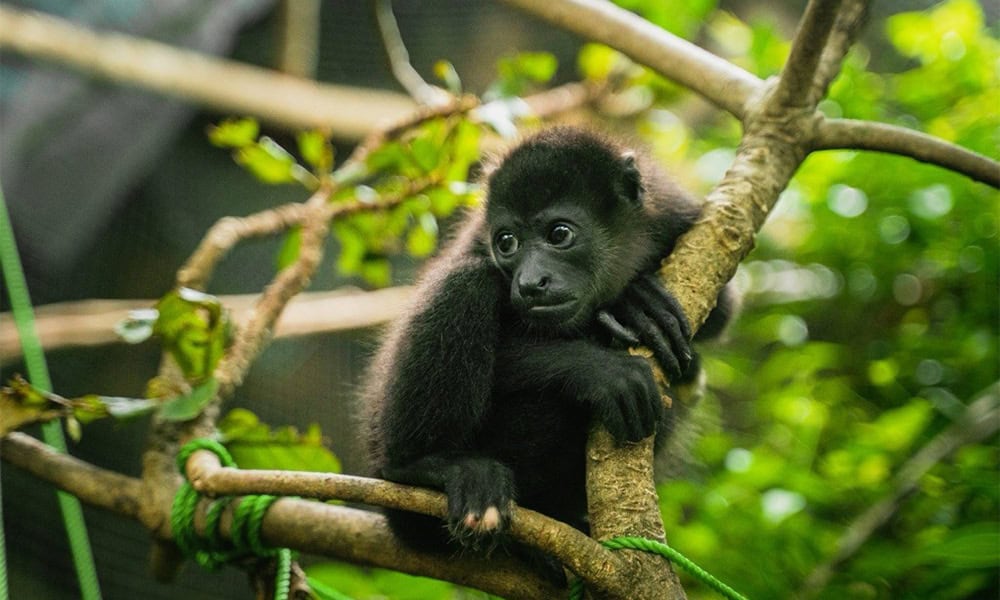Costa Rica is known and loved for its one-of-a-kind nature and wildlife. However, rapid urbanization and a lack of conservation awareness threaten its iconic species. In Nosara, howler monkeys are paying the price: deforestation, uncovered transformers, and unregulated development have led to hundreds of electrocutions. With the country’s booming real estate market, the problem has only worsened.
However, Lisa Kraft-Gould, a passionate conservationist, is working tirelessly to change this. She leads the Nosara Monkey Bridge Project, which aims to ensure the safety of local monkey populations. “About two years ago, I learned about the horrific electrocutions happening in Nosara. We are losing over 100 howler monkeys a year to electrocution and only three percent that get electrocuted survive!” Lisa said.
Determined to take action, Lisa researched wildlife crossings and launched a project to install aerial bridges, allowing monkeys to move freely and safely through their habitats. To fund her mission, she created signs, table toppers, and social media campaigns to raise awareness and donations. Her efforts quickly gained traction, and she assembled a team to construct and install the bridges. The initiative became so impactful that she partnered with Sibu Sanctuary, Jorge Espinoza, and a network of dedicated volunteers.
Today, the Nosara Monkey Bridge Project has installed 125 aerial bridges, preventing countless electrocutions and giving howler monkeys a safer future. However, increased development and deforestation are making it harder to find trees tall enough to safely install the bridges. Lisa emphasizes the need for education among builders, architects, realtors, and investors on how to develop responsibly without clear-cutting lots and destroying essential wildlife corridors.
When trees are removed entirely, monkeys are left with no choice but to travel on power lines—often leading to tragic electrocutions. “It’s extremely sad to see what is going on here in Nosara,” Lisa Kraft-Gould said. “Until the government of Costa Rica enforces its wildlife protection laws, the monkey population will be decreasing rapidly.”
Unfortunately, electric companies continue to install uninsulated transformers without the necessary protective hardware, further endangering the monkeys. Despite existing wildlife protection laws, the government has failed to enforce them, allowing utility companies to prioritize cost-cutting over conservation. Stronger regulations and accountability measures are urgently needed to ensure that electric providers implement wildlife-friendly infrastructure and prevent further harm to Costa Rica’s biodiversity.
Despite these challenges, the Nosara community remains committed to protecting its wildlife, and another group has spawned called “Howler Protectors”, which raises funds to cover exposed transformers. If you’d like to contribute to the bridge program or help cover a transformer, visit Sibu Sanctuary or Howler Protectors.






